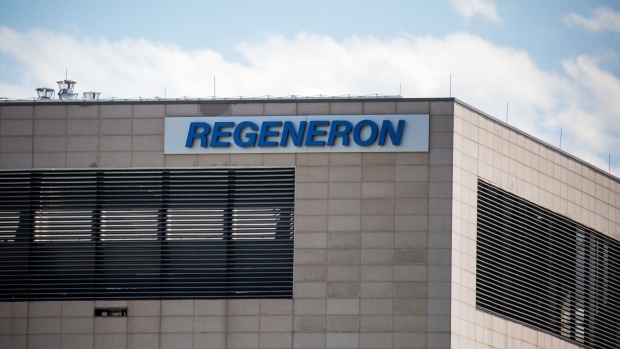Jun 28, 2023
Catalent Is Linked to Regeneron’s Eye-Drug Rejection in Latest Misstep
, Bloomberg News

(Bloomberg) -- Problems at a Catalent Inc. production facility led US regulators to deny a key drug application from Regeneron Pharmaceuticals Inc., the latest headache for one of the main manufacturing partners to the drug industry.
The Food and Drug Administration rejected Regeneron’s application for a stronger formulation of its best-selling eye medicine Eylea “solely due to an ongoing review of inspection findings at a third-party filler,” the drugmaker said Tuesday, referring to the plant where the drug goes through the final stages of production. Catalent on Wednesday confirmed its Bloomington, Indiana, site was the facility in question, where the FDA made three observations during a pre-approval inspection.
Read More: FDA Finds Flaws at Vaccine Factory, Accepts Moderna’s Assurances
“Catalent takes all regulatory observations seriously and has already provided proposed corrective and preventative actions to address these observations,” a company spokesperson said in a statement. “We will continue to support the agency’s ongoing review of our response as we work to bring this review to a satisfactory close.”
Shares of Catalent slid 6.4% Wednesday at 12:03 p.m. in New York. They’ve tumbled 13% this year.
Any delay in the approval could cost Regeneron, making the issue especially painful for Catalent. Eylea may start to face competition from less expensive, near-identical versions of the drug next year, and analysts are counting on the higher dose to help Regeneron stay ahead.
It’s the latest in a string of high-profile embarrassments for Catalent. Earlier shortcomings uncovered during an FDA inspection at the same Bloomington facility tightened supply of Moderna Inc.’s Covid booster shot last fall. Catalent was reportedly linked to problems with the production of Novo Nordisk A/S’ weight-loss drug Wegovy, which was in shortage for about a year.
Danaher Corp. was said to be eyeing Catalent before shelving its takeover pursuit earlier this year.
“This is another high-profile therapy impacted by inspection findings,” at a Catalent site, Stephens analyst Jacob Johnson wrote in a note to clients. It could impact their ability to clinch future supply deals, he said.
Earlier this year, Catalent said it was experiencing slowdowns at a gene therapy manufacturing site near Baltimore due to operational challenges. It also said its facilities in Bloomington and Brussels would face productivity problems because the company is making necessary improvements following regulatory inspections.
--With assistance from Bre Bradham and Ilena Peng.
©2023 Bloomberg L.P.






